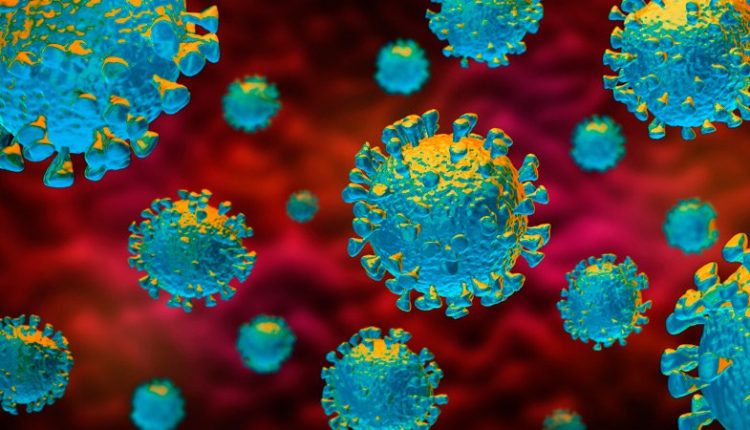The word “unprecedented” has probably recorded the highest usage in the past couple of months as it best describes the time’s nations across the globe find themselves. Nobody has a clear-cut strategy, and each day comes with new questions that require answers for direction. The truth is, we will all have to keep exploring, playing it by ear and weighing options until we reach a state of stability over time.
On April 13, 2020 – His Excellency, the President of the Federal Republic of Nigeria announced a further 2-week lockdown directive across certain states of the country and Lagos being the epicentre was clearly not exempt. The announcement left a lot of people distressed, especially the vulnerable groups who were already agitating for freedom of movement to pursue their daily means of livelihood. However, in light of global trends, it appeared to be the responsible action to take to my mind, for our collective greater good.
My domestic executive (housekeeper) was particularly exasperated that the government was being inconsiderate, as the palliatives provided were not getting to some people at all. According to her, it was better to let people go out to fend for their daily living as they would rather contract the virus and get treated, rather than die from hunger. Clearly following the news, and going by the number of recoveries reported, she inadvertently presumed it was an indicator that treatment of sorts existed, and was only accessible by the more privileged class in society. For her essentially, the situation was not dire enough to warrant a continued lockdown, as long as the same treatment would be provided to the vulnerable groups should they contract the virus whilst engaging in their daily “hustle”.
Realising that this thinking was perhaps shared by millions of Nigerians worried me. Poignantly, it brought to my consciousness the potential threat of a multiplier effect that could emanate from increased community infections, should this group of people espouse their faulty interpretation of the current situation. More disturbing was when I saw the statistics comparing the proportion of confirmed cases recorded in relation to the number of people tested across the globe, and Nigeria was at the bottom of that list. As expected, my immediate reaction was to wonder how our government and relevant bodies plan to increase the number of tests to be carried out in Nigeria.
Then came the eureka moment – in conversation with an AIG Scholar, who happens to be a young medical professional undergoing the Master of Public Policy degree at the University of Oxfords’ Blavatnik School of Government (courtesy – Africa Initiative for Governance). This young man was able to make me see that, in truth and by the looks of the figures being reported by the NCDC, maybe increased Testing was not a critical need for us as much as an efficient and effective Contact Tracing mechanism is. His rationale was this – “A true reflection of the burden of the disease is the mortality rate, and so if we are not testing and people are not dying mysteriously” – we are essentially fine.
Thus, my question: To trace or not to test?
Quite frankly, while I agree with the gentleman’s perspective in terms of a quick needs assessment and surmise that indeed, an effective contact tracing mechanism will help manage the potential threat of an exacerbated transmission while making testing better targeted. Essentially, testing is still required, but should not be the primary focus.
Contact Tracing according to the World Health Organisation (WHO) is a technique used to curb the transmission of communicable diseases. It’s used to identify people who have come in close contact with someone who is infected with a virus and as a result are at high risk of becoming infected themselves and potentially infecting others. The first group of contacts i.e. the primary contacts are easy to identify, the challenge, however, lies in tracing the secondary contacts that come in contact with the originally infected person through someone who made primary contact with the infected person. This is where technology comes in, to address the challenge of identifying the secondary contacts by taking a log of your movements thus parties the infected person has, directly and indirectly, come across, making the process more effective.
This calls to mind the reports from Israel regarding their Contact Tracing Mobile App – Hamagen which has contributed significantly to the effective management of the spread of the virus. Italy also, launched their Immuni App last week as a way to ensure the curve stays flat by nipping in the bud, the possibility of cluster infections. The effectiveness of these Apps was solely hinged on members of society choosing to be responsible and voluntarily adopting them.
It was therefore heartwarming to see the pilot version of CommuniTrace, a Contact Tracing Mobile App developed by some young Nigerians, similar to what the likes of Italy, Israel, South Korea etc. have used to manage cluster infections. Like other countries, an App like CommuniTrace should help manage the extent of spread in communities through voluntary information from community members (anonymously provided so no data privacy risks) which will help the NCDC work even more effectively.
To further support the importance of contact tracing, the World Health Organization (WHO) recently outlined six conditions for lifting lockdowns to contain the spread of the coronavirus, and Contact Tracing cuts across the first three of these conditions. As the WHO Director-General, Dr. Tedros Adhanom Ghebreyesus put it – “This pandemic is much more than a health crisis. It requires a whole-of-government and whole-of-society response.”
And on that note – I encourage you to please be your brother’s keeper, volunteer information to the appropriate quarters using available channels to help ensure the sustainability of our society. At the end of the day, society is really a sum of its parts, and we as individuals make up those parts.

